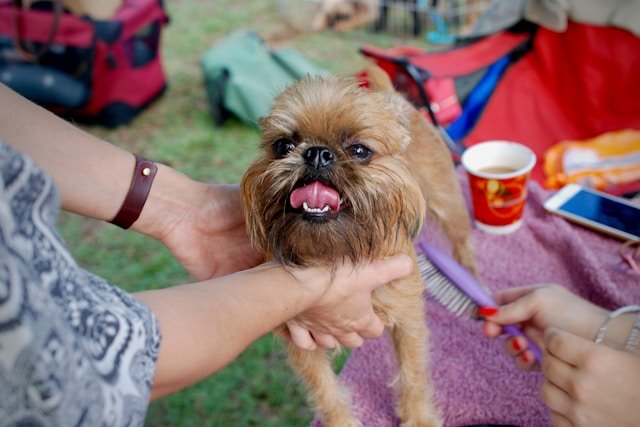
How Often Should I Brush My Dog’s Teeth?
Maintaining your dog’s dental health is just as important as taking care of your own teeth. Poor oral hygiene can lead to plaque buildup, gum disease, and even more serious health issues over time. Brushing your dog’s teeth regularly is the best way to keep their mouth clean and their breath fresh.
Recommended Brushing Frequency
Veterinarians generally recommend brushing your dog’s teeth at least three times a week to prevent plaque and tartar buildup. However, for optimal dental health, daily brushing is the gold standard. Consistent brushing helps prevent gum disease, tooth decay, and bad breath, ensuring a happy and healthy pup.
Why Brushing Is Essential
Just like humans, dogs can develop dental problems if their teeth aren’t cared for properly. Neglecting oral hygiene can lead to:
- Plaque and tartar buildup – Hardened deposits on the teeth that can cause decay
- Gingivitis – Inflammation of the gums, leading to discomfort and redness
- Periodontal disease – Advanced gum disease that can result in tooth loss and infections affecting major organs
- Bad breath – A common sign of bacteria and decay in the mouth
Regular brushing prevents these issues and can also save you from costly vet bills for dental procedures.
How to Brush Your Dog’s Teeth
- Use the right tools – A dog-specific toothbrush and pet-safe toothpaste are essential. Avoid human toothpaste, as it contains ingredients that can be harmful to dogs.
- Start slow – If your dog isn’t used to brushing, begin by gently rubbing their gums with your finger or a soft cloth to get them accustomed to the process.
- Introduce the toothbrush – Apply a small amount of dog toothpaste to the brush and gently brush in circular motions along the gumline.
- Be gentle and patient – Focus on a few teeth at a time and gradually work up to the entire mouth. Praise and reward your dog to create a positive association.
- Make it a routine – Brushing at the same time each day helps establish a habit and makes the process easier for both you and your dog.
Additional Dental Care Tips
If daily brushing isn’t possible, supplement your dog’s oral care routine with:
- Dental chews – These help reduce plaque buildup and freshen breath
- Water additives – Special formulas that promote oral health when added to drinking water
- Dental wipes – A quick and easy alternative for maintaining oral hygiene
- Professional cleanings – Regular vet checkups and professional dental cleanings ensure deep cleaning and early detection of potential issues
Final Thoughts
Brushing your dog’s teeth may seem like a small task, but it plays a crucial role in their overall health and well-being. With consistency and patience, you can make dental care a stress-free part of your dog’s routine, ensuring they have a healthy smile for years to come!
